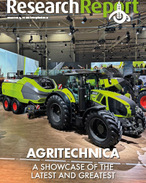This article is 6 years old. Images might not display.
"This demonstrates the clear viability of long-term frozen storage of semen. The results show that fertility is maintained despite 50 years of frozen storage in liquid nitrogen," said Associate Professor Simon de Graaf from the Sydney Institute of Agriculture and School of Life and Environmental Sciences at the University of Sydney.
"The lambs appear to display the body wrinkle that was common in Merinos in the middle of last century, a feature originally selected to maximise skin surface area and wool yields. That style of Merino has since largely fallen from favour as the folds led to difficulties in shearing and increased risk of fly strike," Associate Professor de Graaf said.
His colleague on the frozen sperm project, Dr Jessica Rickard, said: "We believe this is the oldest viable stored semen of any species in the world and definitely the oldest sperm used to produce offspring."
Associate Professor de Graaf said that it was the reproductive biology and genetic aspects of these as-yet unpublished findings that were of most interest to him.
"We can now look at the genetic progress made by the wool industry over past 50 years of selective breeding. In that time, we've been trying to make better, more productive sheep," he said.
"This gives us a resource to benchmark and compare."
Dr Rickard is a post-doctoral McCaughey Research Fellow in the Sydney Institute of Agriculture. She is continuing the strong animal reproduction research tradition in veterinary and biological sciences at the University of Sydney through her work in the Animal Reproduction Group.
Dr Rickard did the original work to determine if the stored semen was viable for artificial insemination. This involved thawing the semen, which is stored as small pellets in large vats of liquid nitrogen at -196 degrees celsius.
She and her colleagues then undertook in vitro tests on the sperm quality to determine the motility, velocity, viability and DNA integrity of the 50-year-old sperm.
"What is amazing about this result is we found no difference between sperm frozen for 50 years and sperm frozen for a year," Dr Rickard said.
Out of 56 ewes inseminated, 34 were successfully impregnated. This compares to recently frozen semen from 19 sires used to inseminate 1048 ewes, of which 618 were successfully impregnated. This gives a pregnancy rate of 61 percent for the 50-year-old semen against 59 percent for recently frozen sperm, a statistically equivalent rate.
The original semen samples were donated in the 1960s from sires owned by the Walker family. Those samples, frozen in 1968 by Dr Steven Salamon, came from four rams, including ‘Sir Freddie' born in 1963, owned by the Walkers on their then property at Ledgworth.
The Walkers now run 8000 sheep at ‘Woolaroo', at Yass Plains, NSW, and maintain a close and proud relationship with the animal breeding program at the University of Sydney.
The research was undertaken in part courtesy of a grant from Australian Wool Innovation.























